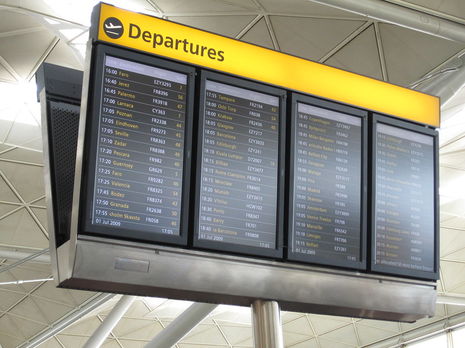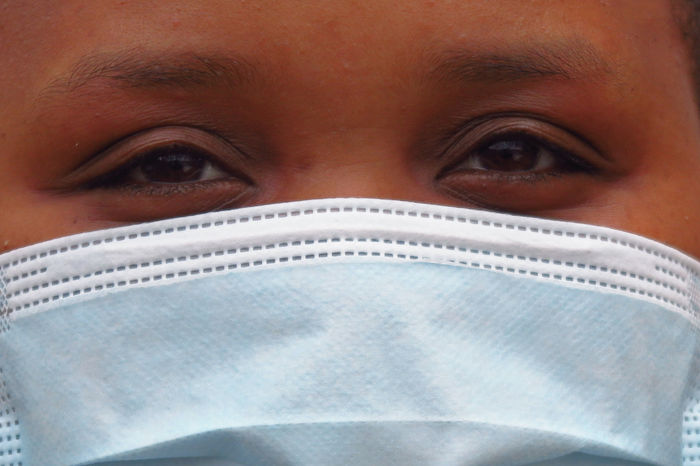Influencer getaways have united the public, but not in the way they would’ve liked
Joe Giles believes that the ‘work’ holidays taken by celebrity influencers during the pandemic have gone against the ‘all in this together’ spirit of lockdown and have rightfully made them a target of criticism from the public.

While browsing a discarded glamour magazine on a train journey, a bemused Bill Bryson found himself asking: "why are these people famous? What qualities do they possess that endear them to the wider world? We may at once eliminate talent, intelligence, attractiveness and charm from the equation, so what does that leave?" Leaving aside the relative attractiveness, intelligence and talent of various reality stars, Bryson’s curmudgeonly remarks raise a much broader question, one which the Covid-19 pandemic has perhaps shed some light on. Namely, what do the public look for in a 21st century celebrity? What is it that compels thousands to avidly consume the online content they generate? Perhaps more pertinently, how concerned are we by the ethical issues raised in its production?
I must confess, I am not naturally inclined to take much interest in the lives of reality television stars and, like Bryson, I sometimes find myself questioning why other people do. Until recently, I had assumed the clue was in the name: ‘reality’, to me, suggests a relatable figure, someone whose appeal lies in the very fact they seem relatively unremarkable and down-to-earth. Many such celebrities have capitalised on this perception, interacting with fans on social media in a way other public figures have not traditionally done.
“Living through a global crisis has required each of us find a means of diversion, a hinterland far removed from the devastating effects of Covid-19.”
What to make, then, of the incessant holiday snaps some jet-setting influencers have been flooding social media with recently? At a time when foreign travel seems like a distant fantasy for most, such images appear almost surreal, fleeting glimpses of the life we once knew, a life many would give almost anything to live. Naturally, this content has a polarising effect, even among those who actively choose to follow it. Posts are attracting swathes of negative comments, often from people who have been deeply affected by the pandemic. To them, being confronted with somebody else’s seemingly idyllic existence strikes of callous insensitivity, and fosters understandable resentment. Yet every photo still receives thousands of likes. Instagram engagement was up almost 50% in the first lockdown, and it isn’t difficult to imagine why. There are only so many apocalyptic headlines and blunt statistics we can process. Living through a global crisis has required each of us find a means of diversion, a hinterland far removed from the devastating effects of Covid-19. Perhaps the hyperreality of Instagram offers, for some, a necessary form of escapism, a reminder that there’s more to life than lockdown. It is not for me – or anyone else – to opine about the ‘right’ way to cope with a pandemic.
Nevertheless, the production of this content raises some uncomfortable questions. The Foreign Office currently prohibits travel abroad for all but essential purposes. The question of whether being an influencer is a ‘real’ job is largely irrelevant; hairdressers and chefs have ‘real’ jobs, but few would defend a salon or restaurant which defied lockdown by remaining open. Is posting online content really a means of employment essential enough to require travel? Influencers’ pages hardly abound with evidence to suggest so. Granted, bikini snaps from a garden in Essex probably do hold a little less allure than those taken at a luxury Dubai resort. But much health, fashion and lifestyle-based content seems well suited to staying at home, as a host of lockdown-abiding celebrities have proven. To many, influencers appear to be justifying an opulent holiday with a legal loophole, profiting financially as a result.
“Brands and television networks have a moral responsibility to disassociate themselves from content which so flagrantly contradicts the spirit of the crisis.”
It’s worth remembering that this is a symptom of several far more sinister undercurrents. Priti Patel’s recent denunciation of holiday-makers was well-received, but the government she serves has persisted with one of the most porous, least effective border policies in the developed world, failing to require a negative test on arrival and largely ignoring a worrying lack of compliance with travel quarantine measures. Many of the influencers abroad travelled before Tier 4 was introduced in many areas in December, when holidays were advised against but not explicitly forbidden by law. Such negligence seems staggering now. Questions must also be asked of the UAE, a nation with a woeful human rights record which willingly plays host to the celebrity party scene while domestic cases increase. Similarly, brands and television networks have a moral responsibility to disassociate themselves from content which so flagrantly contradicts the spirit of the crisis, though there is little sign of them doing so.
This is, admittedly, a debate mostly driven by image, but in a time of national crisis the importance of symbolism cannot be underestimated. Numerous psychological studies have found evidence to suggest that our own observance of lockdown measures is motivated largely by how compliant we perceive everybody else to be. Celebrities serve as role models to thousands, and consequently their behaviour is heavily scrutinised. The trite myth of us ‘all being in this together’, pushed by a government seeking to distract from the vast inequality that has facilitated this disaster, is hopelessly exposed when money and status appear to insulate a privileged handful from the effects of the pandemic. When maximum individual sacrifice is universally required, some celebrities’ flagrant lack of awareness is irresponsible to say the least.
Some influencers have seen a significant drop in their online following, but whether their long-term popularity will suffer is anyone’s guess. Perhaps, in a rush to exorcise every lingering memory of this nightmare, this debate will simply wash away. But when the sheer scale of human loss truly hits, I suspect each of us will ask ourselves how we spent the pandemic. When so many public figures have had a genuinely positive influence, those who chose to go on holiday may find they face more scrutiny than most. In the meantime, if you find yourself growing disillusioned or resentful, simply avoid the content, and take solace from the fact that the jet-setters will likely have to spend ten days stuck in an airport travel lodge when they eventually return.
 News / Clare Hall spent over £500k opposing busway 24 December 2025
News / Clare Hall spent over £500k opposing busway 24 December 2025 Comment / The ‘class’ of Cambridge24 December 2025
Comment / The ‘class’ of Cambridge24 December 2025 News / Caius mourns its tree-mendous loss23 December 2025
News / Caius mourns its tree-mendous loss23 December 2025 Comment / League tables do more harm than good26 December 2025
Comment / League tables do more harm than good26 December 2025 News / Girton JCR publishes open letter expressing solidarity with Palestine25 December 2025
News / Girton JCR publishes open letter expressing solidarity with Palestine25 December 2025









